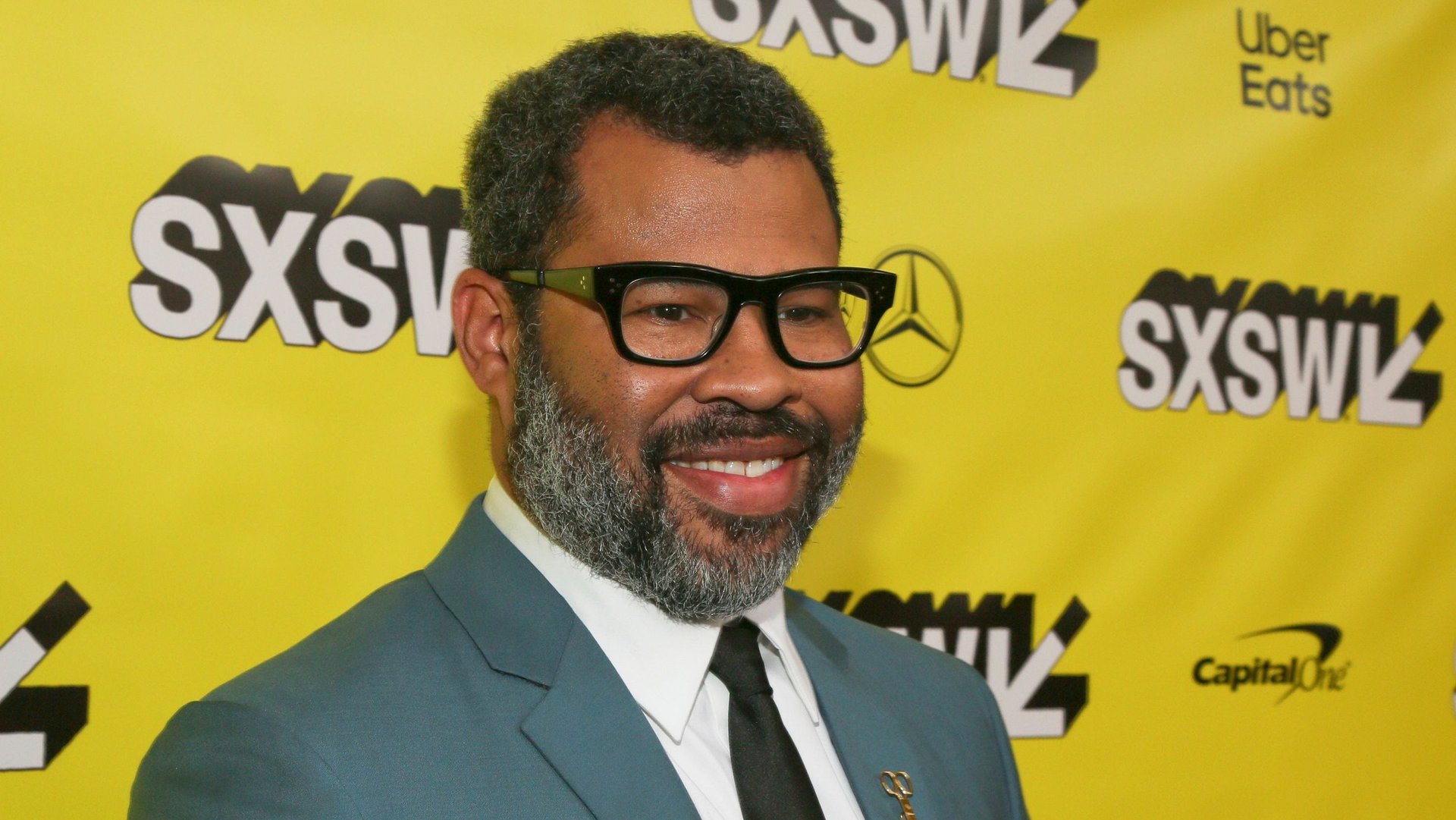Jordan Peele is not the next Spielberg or Hitchcock. He’s the first Jordan Peele
Jordan Peele debuted his new horror film, Us, at the SXSW film festival in Austin, Texas last week (March 8) to a rapturous reaction in the theater, and later on social media.


Jordan Peele debuted his new horror film, Us, at the SXSW film festival in Austin, Texas last week (March 8) to a rapturous reaction in the theater, and later on social media.
“It’s official: Jordan Peele is the new Spielberg,” one viral tweet read. “We are witnessing the birth of our modern day Hitchcock,” declared another.
But the question is not whether Peele is “the next” Steven Spielberg or Alfred Hitchcock—or any other famous director, for that matter. The real question is which filmmaker will be the next Jordan Peele.
Well-meaning and reverential as these comparisons are, they belie a far more significant takeaway from the successful premiere of Peele’s second film as a director: There has never been anyone like this in Hollywood before. We’re not witnessing the birth of a new Hitchcock, we’re witnessing the evolution of a new kind of filmmaker.
Not that there was much doubt, but Us proves that Peele’s 2017 thriller Get Out was no fluke. He has avoided the dreaded “sophomore slump” that has plagued filmmakers from Steven Soderbergh to Spike Jonze after their lauded directorial debuts. In many ways, in fact, Us is a bolder and more confident film, with even more to say, than Get Out, though some critics have pointed out that its thematic clarity gets muddled amid all that aplomb. Still, the critical consensus is glowing, and it’s going to make lots of money.
Starring Lupita Nyong’o and Winston Duke (reunited after appearing together in Black Panther), Us follows a family of four on a trip to their beach house in Northern California for the weekend. They meet up with some friends (Elisabeth Moss and Tim Heidecker, both wonderfully awful in this film) before heading back home. That’s when they spot a family lurking in their driveway in the middle of the night. A family that looks just like them.
The Twilight Zone-esque premise (fitting, since Peele’s reboot of the classic science-fiction series debuts on CBS All Access in April) quickly devolves into a chaotic slasher with a surprisingly deep mythology. As Get Out did, Us mixes a number of genres—it’s as funny as it is terrifying (and it’s quite terrifying). By fusing elements of horror, suspense, sci-fi, and comedy, Peele is creating a genre unto himself. “Jordan Peele,” it turns out, can be its own genre.
That Peele’s films can’t easily be pinned down or neatly labeled underscores his versatility as a filmmaker and his commitment to doing things on screen that haven’t been done before. His movies might be as big as Spielberg’s—and perhaps some day considered just as definitive—but they’re very different in tone, style, subject. They’re different from Spielberg’s oeuvre because they’re different from everyone’s. They’re new.
Us puts a huge, can’t-miss spotlight on Peele’s acute sense of the “iconic moment.” Every other scene, line, image, and music cue seem destined to live on in the collective cultural psyche for years to come. One scene in particular—you’ll know the one—finds a way to turn “Good Vibrations” by The Beach Boys into the demented soundscape of death. You’ll never hear that psychedelic electro-theremin hook the same way again.
The film isn’t about race in the way that Get Out was, but it’s still a thoroughly political effort, with strong convictions about the state of America today (some more subtly depicted than others). Spielberg, as great a director as he is, has historically eschewed that type of provocation, relying instead on awe and spectacle to win over audiences of all types. Peele’s first two films show that it’s possible to do both.
“I’m a comedy guy: In my DNA as an artist is the desire to provoke,” Peele said at a SXSW panel discussion for Us hosted by BuzzFeed. “I think if I’m not doing something that might piss people off, I’m probably doing it wrong.”
A versatile provocateur whose two films are both still relentlessly entertaining, Peele isn’t quite like any director to ever work in Hollywood.